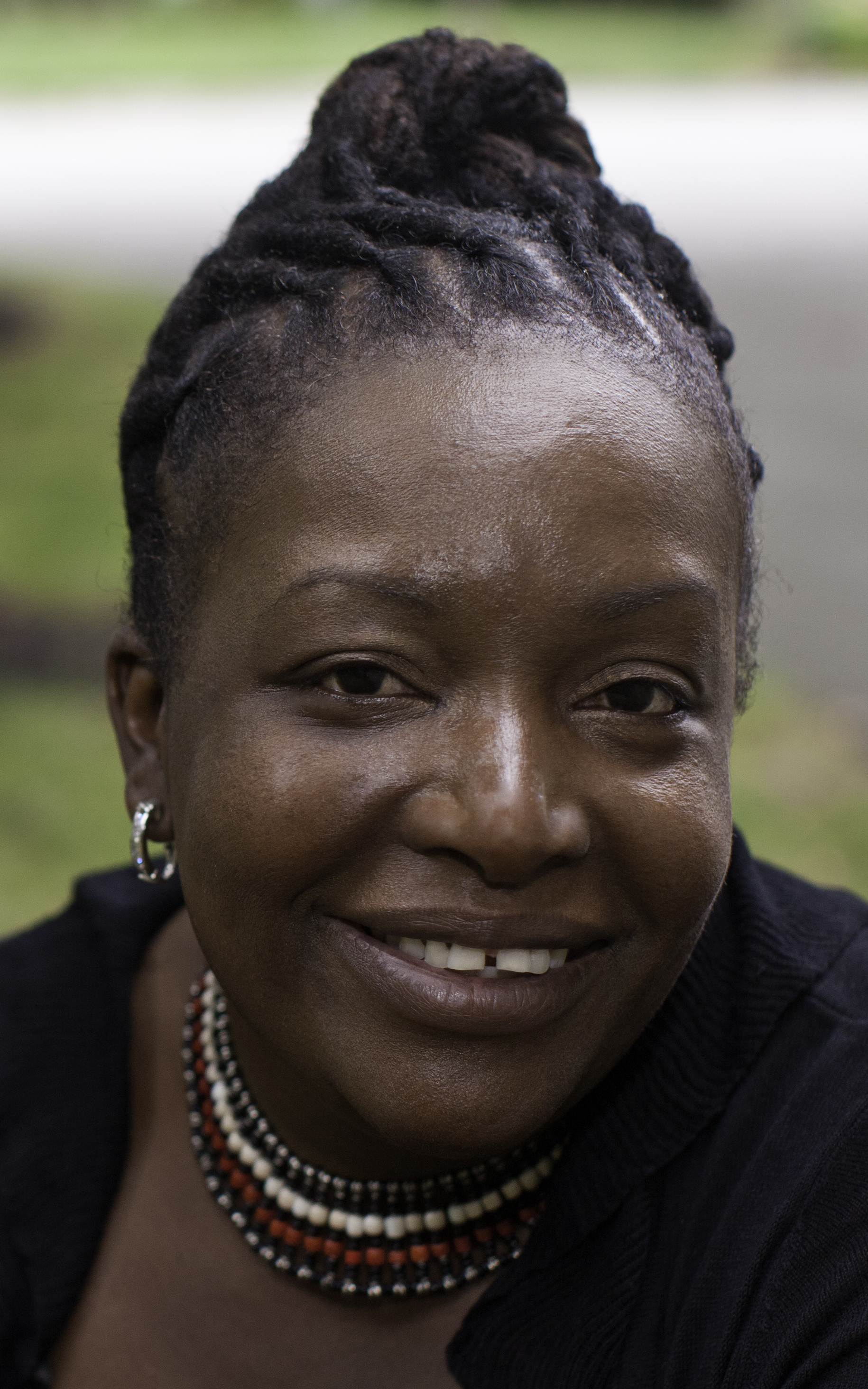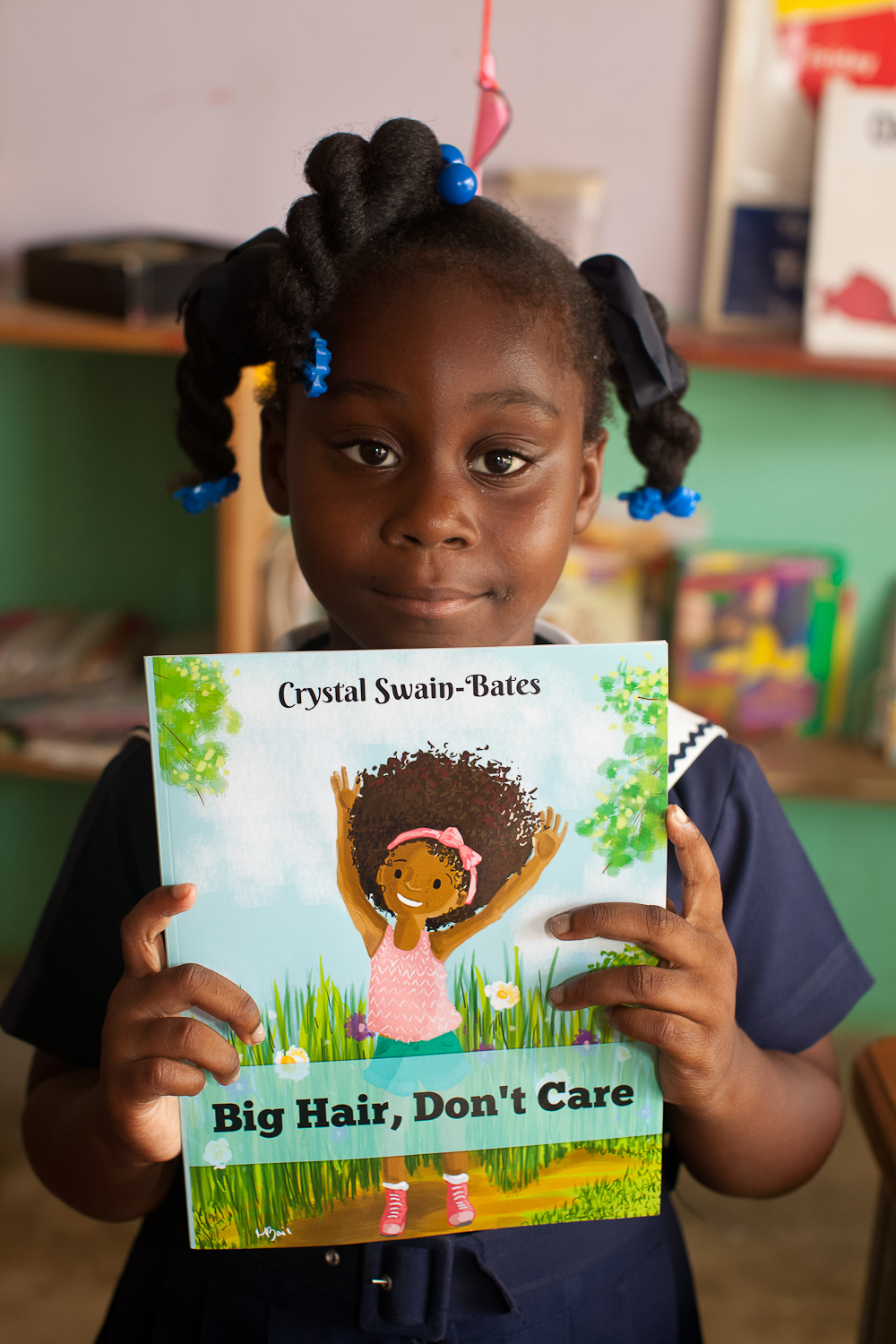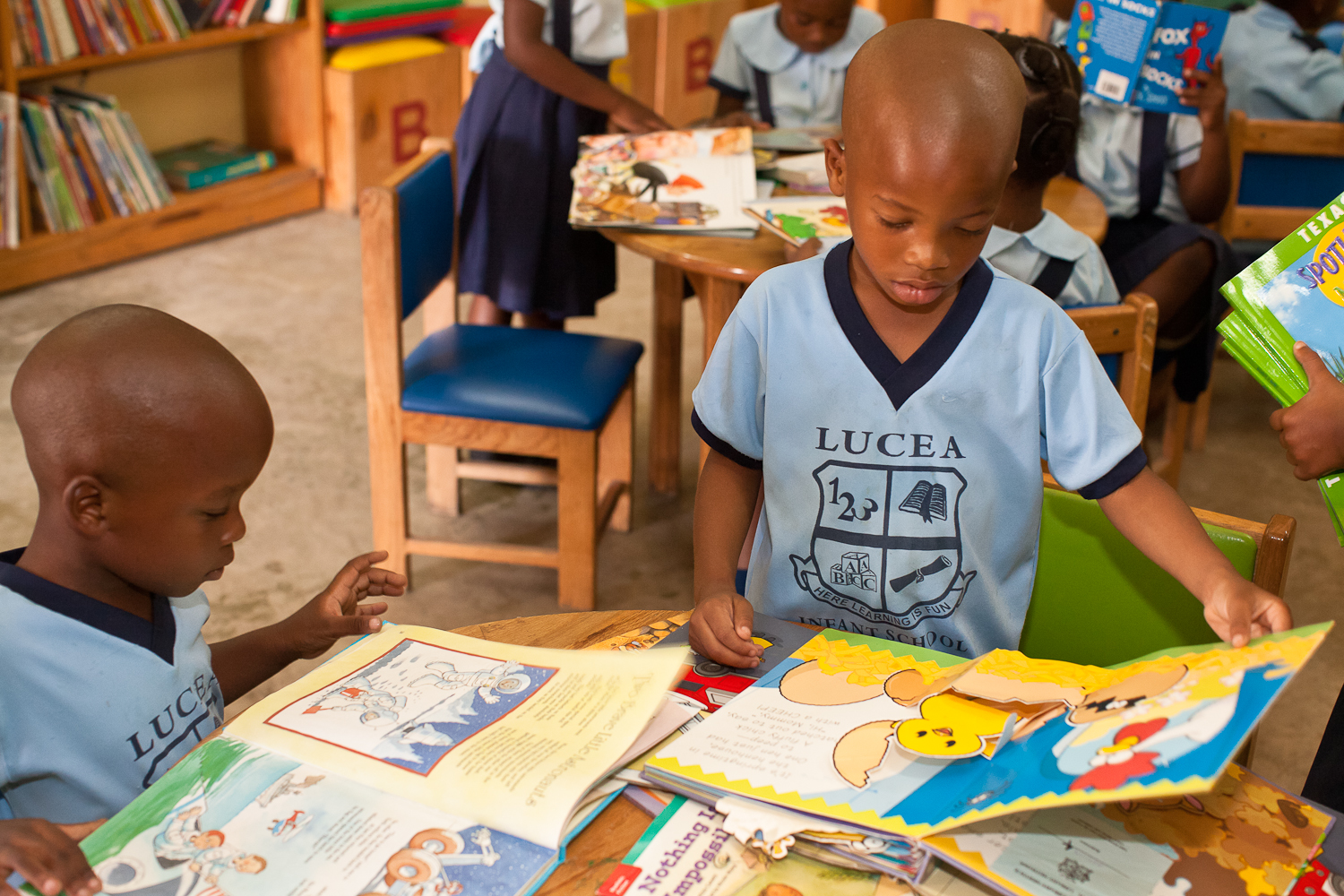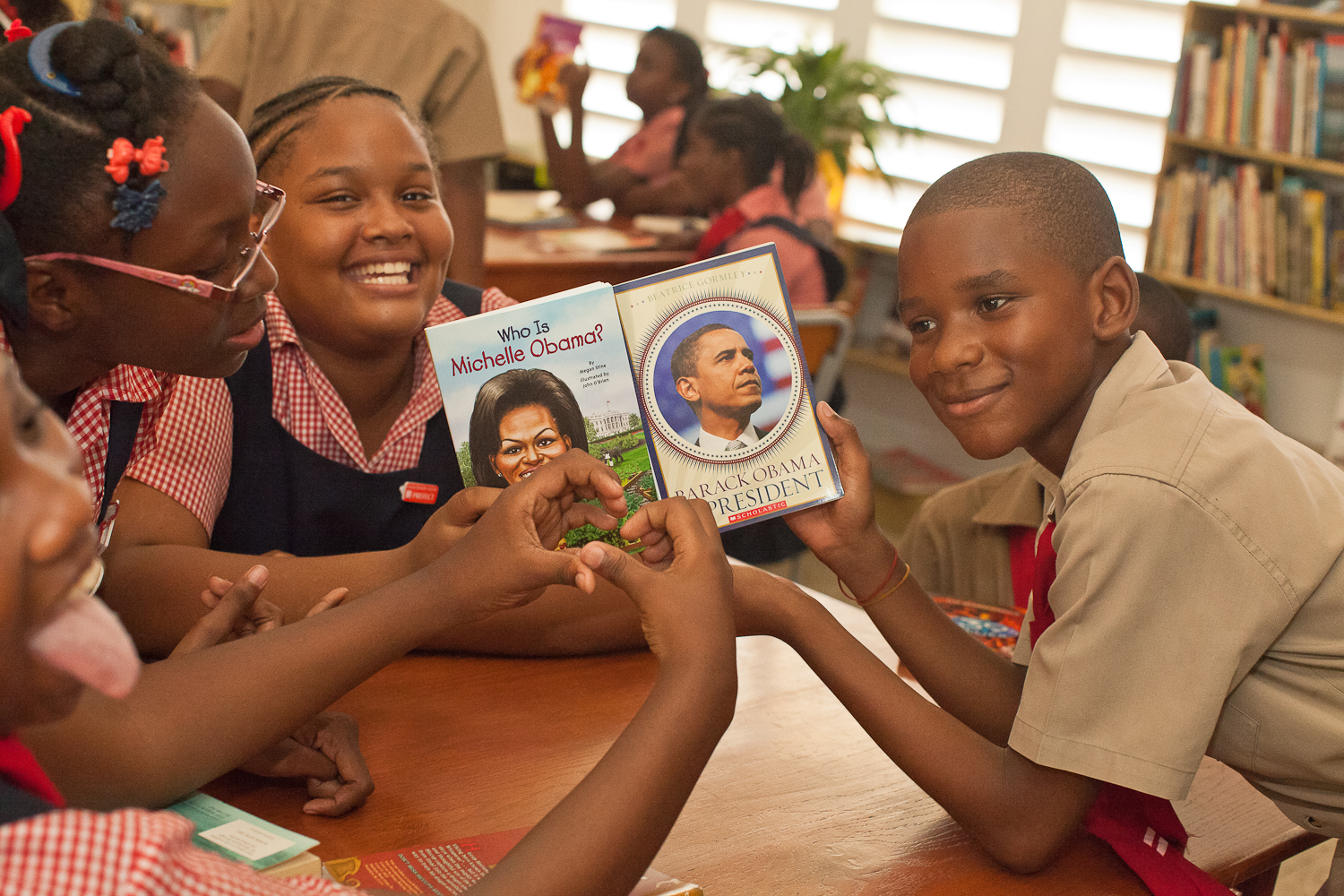 I was e-introduced to Elaine Dickson through a friend who is one of those people who know, you know what I mean? If Shelly Ann refers someone, you *know* they’re good people. So I was ready to be blown away, and I was not disappointed! Ms. Dickson and her husband founded Reading Owls International, a nonprofit organization dedicated to increasing literacy levels in Jamaica. Reading Owls does more than just collect and donate books; the organization works with educational institutions and their surrounding communities to build sustainable, community-based programs, giving thousands of children access to literature. Today, Part One of our Interview. Welcome, Ms. Dickson!
I was e-introduced to Elaine Dickson through a friend who is one of those people who know, you know what I mean? If Shelly Ann refers someone, you *know* they’re good people. So I was ready to be blown away, and I was not disappointed! Ms. Dickson and her husband founded Reading Owls International, a nonprofit organization dedicated to increasing literacy levels in Jamaica. Reading Owls does more than just collect and donate books; the organization works with educational institutions and their surrounding communities to build sustainable, community-based programs, giving thousands of children access to literature. Today, Part One of our Interview. Welcome, Ms. Dickson!
Tell us the story of Reading Owls. Why did you start the organization? What were some of the first steps that you took?
Reading Owls International (ROI or Reading Owls) was started out of a desire to give back to Jamaica, the country of my birth, in a way that felt tangible and long lasting. My husband Easton and I had been saying for years that we needed to “do something” as the crippling lack of opportunity and resources was still so evident in places we would visit on the island. When we went back to our communities it was often dispiriting as access to books, a public library and basic educational opportunities – which are a basic human right – were still absent.

I grew up in eastern Jamaica and there was no library in my community or at my school and I had no books at home. To be able to borrow a book to read, I had to travel several miles by foot and three communities away in order to nurture my love of reading. Easton’s story is similar; at one point he was fortunate enough for a book mobile to travel through his town, but very soon it was discontinued because of a lack of government funding.
For us the time had come to take action. We wanted to fundamentally change the outcome for the current and future crop of kids and felt that we could rally enough support here in the US to make a difference.
Family and friends were very receptive to the idea and this made it a lot easier to organize as a 501 (c)(3) public charity. From December 2013 through the first half of 2014, we spent a lot of time in strategy sessions to really craft a mission that spoke to the needs we saw on the ground. We also wanted to make sure that even as a nascent organization we were strong administratively, so getting needed federal and state registrations, drafting protocols, crafting marketing collaterals, and seeking out as many vendors, partnerships and collaborations as we could was critical in the first half year of 2014.
Then it was on to a full-fledged marketing and social media campaign to get the idea out to the general public. We could not have imagined the tremendous support and reception we have received.

Tell us a bit about your day-to-day work. What are some of the challenges in what you do?
Our day to day operations are led by a volunteer board and several committees. Our board is not just a strategic board, but also a “working” board. We are heavily focused on growth, building as many libraries as we can to bring access to books as early as possible to as many kids as we can, but in a deliberate way that does not compromise our mission of increasing the literacy levels of school-aged children by partnering with grassroots organizations in Jamaica to create or supplement libraries.
Much of the day-to-day operational work also revolves around increasing our footprint, having social media content to create awareness around our brand and mission. We are focused on finding new partnerships and collaborations, so that we can do more. It is critical for us to have a strong local presence in Jamaica as our challenges are exacerbated without the right local help. Getting back accurate data from the field, as well as the stories and photos that provide the appropriate level of update to our supporters is critical and sometimes challenging, as we are not consistently on the ground and depend largely on our partner organizations to provide information in the absence of our visits.
There have been so many requests for creating or supplementing libraries and as a up-and-coming organization we do not have the capacity to meet some of the needs. Our goal for this year is to create/supplement 5-6 new libraries and for a three-year-old company this is a major milestone.
Finding exceptional and committed board members and fundraising at a level to match our scale and plans for growth are challenges not unique to us, yet they are critical to our success. Currently, it is not possible for us to hire paid staff and finding great and committed talent that is willing to volunteer is challenging. We are extremely fortunate and grateful to have the success we have had with a team that is dedicated to our mission, but we have to carefully guard against burnout. Hopefully with more exposure we will see a greater influx of participation, especially from members of the Jamaican Diaspora. The needs in Jamaica are acute and with the right blend of participation here and locally, I believe we are poised to make even bigger strides this year.
Are there any books, stories, or people that inspire you and your work?
Books – I approach book conversations very carefully because I can never end them. Even with limited resources, I was still very fortunate to have been exposed enough to books so much that to this day I am a voracious reader. In terms of contemporary writers, Chimamanda Ngozi Adichie is a favourite. I have read all of the books written by the late Buchi Emecheta after being introduced to The Joys of Motherhood. I am drawn to the works of female writers, writings that explore female independence or a desire to be, especially when it is achieved by gaining more knowledge or formal education. The desire to be one’s true, independent self is a human right issue and works that dig deeply into the subtlety and challenges of gaining such freedom is arresting to me. In so many parts of the world the right to an education – especially for girls – is still aspirational.
John Wood at Room to Read really inspires me. What he has done – certainly with a lot of help – for people in the developing world by building libraries is nothing sort of astounding. He is passionate and relentless and I admire his work ethic tremendously. Likewise, Bill and Melinda Gates with their foundation.
While this is not tied to education, the staff and volunteers at Doctors Without Borders (MSF) have my tremendous respect and admiration. Their bravery and selflessness is truly inspirational.
As a teenager and young adult on the cusp of deep social consciousness, I was – and still am – quite drawn to the works of Claude McKay, Samuel Selvon, James Baldwin, Toni Morrison and more recently, Ta-Nehisi Coates. They are my go to readers even as a roborant during quiet reading time. More recently, I am attempting to read from Book Riot’s, “Around the World in 80 Books,” including works by Ondjaki, Margaret Atwood, Marcela Serrano and Gabriel García Márquez, all phenomenal writers.

Why do you think it’s important for children to see themselves in literature?
All the research shows that children relate better to books when they are able to see themselves and their experiences in the literature they read. There has been much talk recently – especially with the explosion on the scene in 2014 of We Need Diverse Books – that children need windows and mirrors, to view themselves and to see the rest of the world.
At Reading Owls, we view it as a critical component of the curating we do before sending books to Jamaica. We have an even more difficult task as we are attempting in many cases to get kids immersed or hooked on reading. All children have to be able to relate to some of the books they read and the characters and experiences in them. We stress a great deal that our books need to be high quality and culturally relevant. It is hard work finding a significant amount of books that are relevant for Jamaica as there is a dearth of Caribbean (and persons of color) writers who get published. I am aware that many of the books published annually do not have minority characters as the protagonist. While I continue to be encouraged by the uptick in diversity, children’s literature needs to better reflect diversity across the spectrum.
I still vividly recall the introduction of books that reflected me and experiences that I could relate to both at the primary (elementary) level in Jamaica as well as at the college level in the US. For someone who grew up reading lots of Shakespeare, Bronte, Hardy Boys, Nancy Drew, Louis L’Amour (the latter my father had gotten as a gift and I was hooked), finally reading books written by and about Black people was a watershed moment. Green Days by the River by Michael Anthony, The Lonely Londoners by Samuel Selvon, Miguel Street by V.S. Naipaul, No Telephone to Heaven by Michelle Cliff, Annie John by Jamaica Kincaid, The Children of Sisyphus by Orlando Patterson and the poems of the late Louise Bennett Coverley and Claude McKay totally altered my perception of self and Blacks in general. I began to see us as amazing writers and storytellers whose writing is just as beautiful and arresting, but lacking in exposure.
Be sure to come back tomorrow for Part Two with Elaine Dickson! Learn more about her work, and how you can help.

One thought on “Bringing Books Back Home: A Chat with Elaine Dickson of Reading Owls International”